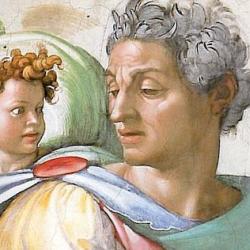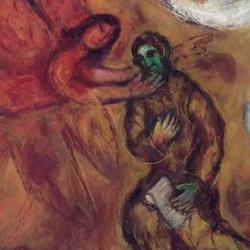INTRODUCTION
Zion has been pleading with God to bare His arm and come to her rescue (Isaiah 51:9), and Yahweh has promised to do it in a dramatic public way (52:10). When the arm is revealed, it’s not what Zion expected (53:1).
THE TEXT
“Who has believed our report? And to whom has the arm of the Lord been revealed? For He shall grow up before Him as a tender plant, and as a root out of dry ground. He has no form or comeliness; and when we see Him, there is no beauty that we should desire Him . . . .” (Isaiah 53:1-12).
DESPISED AND FORSAKEN
Isaiah told the people to expect a Branch from the stump of Jesse (11:15), but the Servant is as insignificant as a blade of grass from the desert ground of Judah (53:2). He’s not a majestic tree; He is only a single shoot, not a garden. He is rejected and forsaken even by those closest to Him (cf. John 1:11-13; 18:15-18, 25-27), finally cut off from the land of the living (v. 8). The people despise Him and hide their faces (vv. 2-3). He carries the sorrows of the people (v. 4a), but they regard His suffering as judgment from God: God must be the Servant’s enemy, they say (v. 4b). The people keep Him at a distance as if He’s stricken with leprosy (Leviticus 13:8; 2 Kings 15:5).
INNOCENT SUFFERER
What the people fail to see is that the Servant doesn’t suffer for His own sins, as the people think, but for theirs (v. 5). “His” wounds and pain are for “our” transgressions and iniquities. The people chasten and scourge Him, but that is how the Lord brings peace and healing (v. 5) and the way that the wandering sheep are gathered back to the fold (v. 6; cf. Isaiah 40:11). He never rebelled, yet He suffered like a rebel. He did no violence and did not deceive, but He was assigned with the wicked rich in His death (v. 9). He was numbered among transgressors and rebels, though He was not one of them (v. 12). The people also fail to see that in the Servant’s suffering with the people, the Lord is at work. The servant bears the people’s grief and sorrow; but this was the Lord’s will, to let Him be crushed with grief (v. 10).
GUILT OFFERING
In the Torah, the guilt or trespass offering was given to compensate for violations of God’s holiness. If someone at holy food or took something that belonged to God, he was guilty of sacrilege and had to repay and offer a trespass offering. That is what the servant does (v. 10). He is like a lamb led to slaughter (v. 7). The holy people has become unholy, and thus has trampled on Yahweh’s holiness, and the Servant Himself becomes the offering that restores the people to God’s favor. Because of the Servant’s work, those who are out of sync with the Lord are put right. He is the Righteous One, and because He suffered righteously, He justifies many (v. 11). Having borne the people’s sin, He intercedes for transgressors (v. 12).
SUFFERING SERVANT
Jesus is, of course, this Suffering Servant, not only in His final days of arrest, trial, suffering, and death but throughout His ministry (see Matthew 8:16-17). But it is supremely in His death on the cross that Jesus fulfills this role (1 Peter 2:21-25). The suffering man on the cross is the Arm of the Lord in Person, the power of God made flesh to restore barren Zion.














